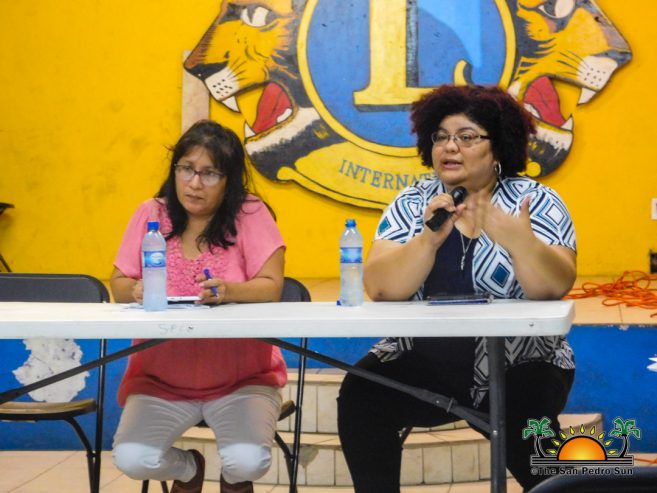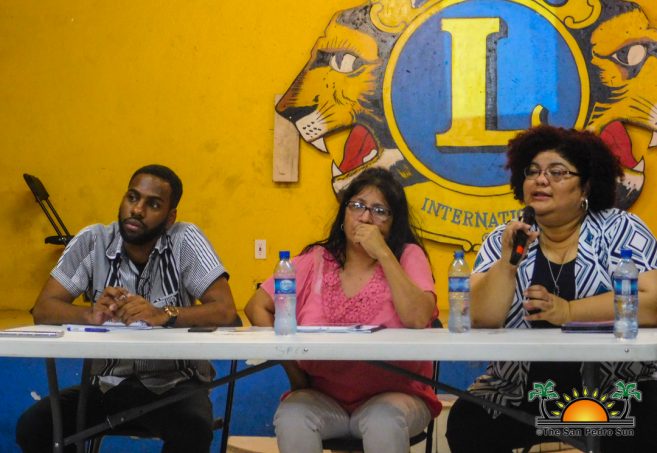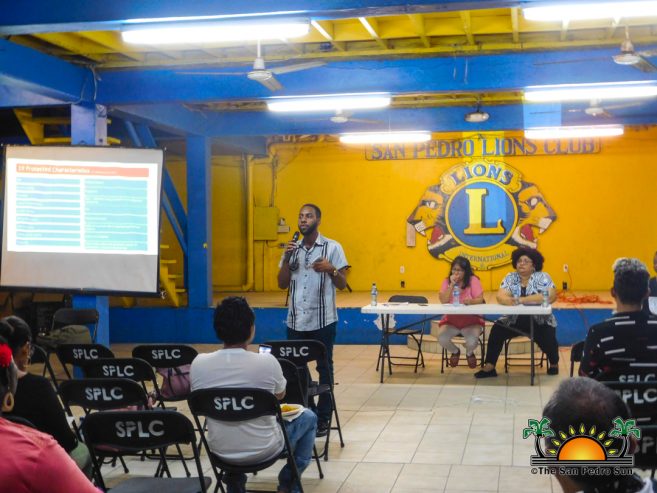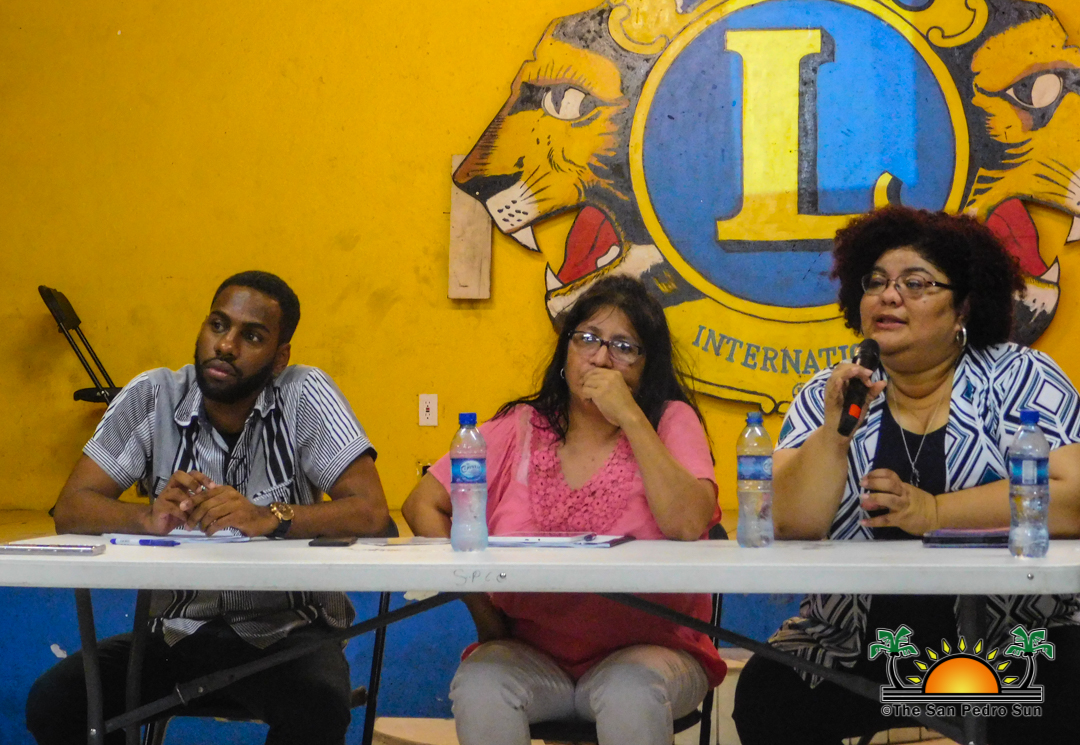The first round of consultations regarding the drafting of a new piece of legislation seeking to address the issue of discrimination in and around the workplace took place in San Pedro Town on Saturday, January 11th. The project, championed by the National AIDS Commission, includes discussions about an Equal Opportunities Bill in which the Belizean population is consulted and informed of the benefits, should the proposed idea become law.
The session in San Pedro took place at the Lions Den, where a trio of presenters – Judith Alpuche, Chief Executive Officer in the Ministry of Human Development, Social Transformation, and Poverty Alleviation, Keila Teck, investigator at the Ombudsman office, and Randall Sheppard, Senior Crown Counsel with the Attorney’s General Ministry addressed a handful of attendees.
Alpuche explained that the purpose of the proposed Bill is to provide protection from discrimination in public life, promote equal opportunities, and address inequality. The Bill also proposes the establishment of a commission to address and investigate individual complaints, while facilitating the government, business, and the community in identifying and eliminating discrimination. According to her, such issues are to be addressed by a specific Equal Opportunities Tribunal, which will provide broad-ranging remedies.
Teck added that legislation would ensure persons living in Belize have an equal chance to work, access services and generally be treated fairly. She listed some of the protected characteristics that the proposed new law will look after. If someone is looking for opportunities, whether it is a job, he or she cannot be turned down because of age, disability, gender identity, HIV status, intersex status, political opinion, pregnancy, race, sexual orientation, someone who has experienced domestic violence, has family responsibilities, among others.
Senior Counsel Sheppard stated direct and indirect discrimination would be prohibited under this Bill. Some of these include harassment and victimization. He also explained that whenever there is no equality, the law will encourage arrangements so that an individual can have equal access to a certain service. In his presentation, Sheppard explained that if the law is passed, there will be some amendments to other laws. For example, in the Labour Act, they will seek to ensure prohibition on mandatory testing for HIV. In the Children and Families Act, the law will seek to allow persons over the age of 16 to access services related to testing and treatment of sexually transmitted diseases and infection. Likewise, when it comes to the Harassment Act, it will provide the Equal Opportunities Commission and Tribunal Jurisdiction to hear matters. This commission will also provide access to legal aid, enforce judgments and monitor compliance with the legislation.
Some of the audience said they found the proposal informative and fair, but a few others indicated that they felt it could bring major problems as it is something very sensitive that needs to be analysed carefully. The audience and presenters both agreed on the possibility of a second consultation in San Pedro, where more persons could participate and weigh in on the proposed legislation.
The new proposed Bill has received positive reviews from both the United Belize Advocacy Movement (UNIBAM) and the Leader of the Opposition from the People’s United Party, Honourable John Briceño. UNIBAM’s Executive Director, Caleb Orozco said that while the lesbian, gay, bisexual, and transgender citizens are protected under this law, the compass of the bill should create an equal level for everyone in the labour area. Meanwhile, Briceño added that his party supports equality in Belize and believes that there should be no discrimination based on sex, race or political affiliations. “So on principle, it is something that we support,” said Briceño.
The consultation will continue across the different municipalities across the country. Once its final draft is complete with public input, it will be presented to Parliament for debate and the possibility to make it a law.

Share
Read more

